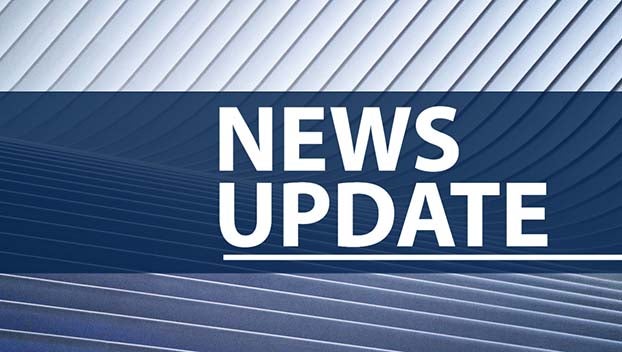State misses deadline for railroad grant funding
Published 5:46 pm Thursday, June 21, 2018
The state of Alabama missed its deadline to apply for the Federal Railroad Administration (FRA)’s FY17 Consolidated Rail Infrastructure Safety and Improvements (CRISI) funding to help restore passenger rail service to the Gulf Coast, the Southern Rail Commission announced in a release.
The deadline for Gov. Kay Ivey to submit the application was at the end of the day on June 21.
“The Southern Rail Commission (SRC) regrets that it was unable to apply for the Federal Railroad Administration (FRA)’s FY17 Consolidated Rail Infrastructure Safety and Improvements (CRISI) funding due to the lack of state funding commitments from Mississippi and Alabama,” the SRC said in a release. “The CRISI program was created and funded with the support of Sen. Wicker and then-Sen. Cochran, and the Gulf Coast rail project was well suited to take advantage of this unique opportunity. Louisiana Gov. John Bel Edwards was prepared to commit $9.5 million toward the project. The SRC stands ready to apply for the FY18 round of funding should Mississippi and Alabama commit the required matching funds.”
The FY17 CRISI grant request included proposed funding to study the capacity and growth of rail service for the Port of Mobile, in order to assist both freight, commercial and potential passenger rail operations, according to the SRC. This is a key issue for future rail service north and east of Mobile. Additionally, this was Phase 1 of a multi-phase effort to restore the service. Phase 2 included extended the service from New Orleans to Orlando, Fla. with Atmore being a stop.
“To assist in maintaining and providing for future growth with freight and commercial rail operations, this grant included $1 million to assess and provide preliminary engineering on rail congestion issues for the Port of Mobile – a key issue with Gulf Coast rail service of all kinds,” the SRC said in a statement.
According to the Trent Lott National Center at the University of Southern Mississippi, restoring passenger rail along the Gulf will deliver an annual return on investment of between $64 million and $525 million for Mississippi, between $19 million and $229 million for Alabama, and between $86M and $378M for Louisiana, depending on the increase in tourism. The combined local match between Mississippi and Alabama of approximately $20 million would be more than offset by this unprecedented return on investment.
“I know I speak for my fellow commissioners when I say I’m very disappointed to not take advantage of this funding for which Gulf Coast Passenger Rail is so perfectly suited. We’ll turn our sights to the 2018 fiscal year, and I’m hopeful we will have full support to apply for CRISI funds at that time,” SRC Chairman John Spain said.
The grant funds were a 50-50 match, and would’ve been paid over a three-year period.
Jerry Gehman, a commissioner with the SRC, said he’s received phone calls from senior citizens telling him that they are in need of an alternate form of transportation. The decision was indicative of where the restoration of passenger rail service is in the state, he said.
“It puts a major notice to us that she (Ivey) doesn’t support rail service in the future,” Gehman said. “Second, this effects Mississippi and Louisiana. If you do the equation, that’s ($5.9 million for the grant funding) nothing in the overall state budget.”
Ivey said in a statement that the state has “higher priority opportunities” to address.
“I have carefully evaluated the impact of restoring passenger rail service between Mobile and New Orleans and the potential economic benefits it may produce,” Ivey said in a statement to AL.com. “As a result of Alabama’s growing economic and global footprint, the Port of Mobile continues to expand, while Alabama achieved a record level of exports in 2017, totaling $21.7 billion. Accordingly, consideration must also be given to the impact passenger rail service will have on the commercial and freight rail service that share the same track. It has become clear to me that, though some economic benefit may be realized by new passenger rail service, such service will have an outsized detrimental impact on other types of rail service.
“As we continue to address congestion on our surface transportation systems, both on our highways and rail system, I currently do not plan to provide limited state resources to passenger rail service. We have higher priority opportunities to address congestion on I-10 through the Mobile River Bridge project, expansion of the Port of Mobile and numerous highway projects around the state.”
Ivey’s gubernatorial competition, Walt Maddox, a democrat, said she missed an opportunity.
“After exhaustive research and study, Governor Ivey’s own appointees to the Southern Rail Commission recommended an investment that would vastly enhance Alabama’s tourism industry for decades to come by creating new jobs and revenue for a 21st Century economy, he said. “This is not about passenger rail versus freight — this is about the past versus the future. This decision continues Governor Ivey’s pattern of outdated governing that keeps Alabama at or near the bottom in everything that matters. In missing this opportunity to position Alabama at the epicenter of passenger rail travel on the gulf coast, Governor Ivey proves that Alabama is not ‘on the right track.'”



